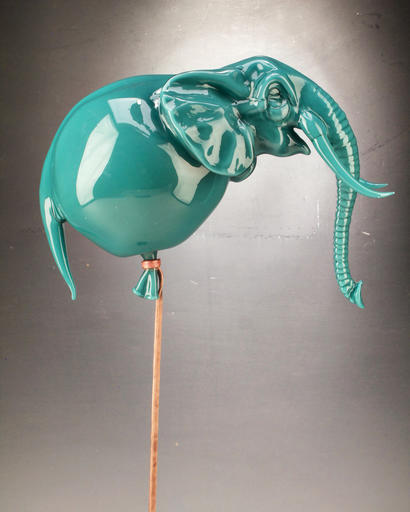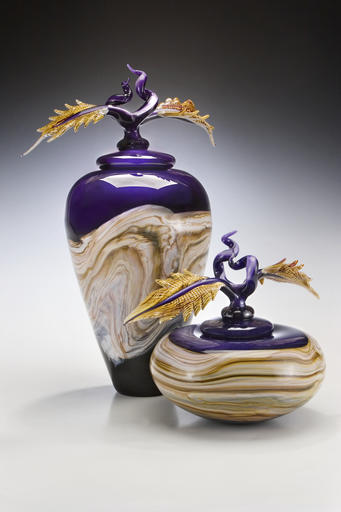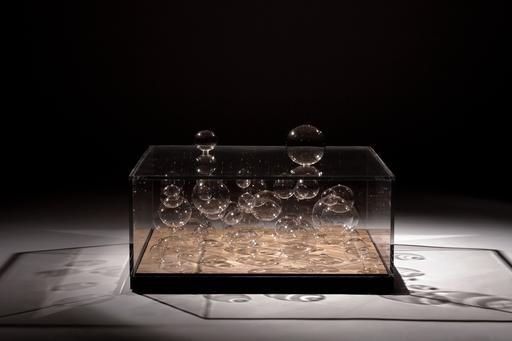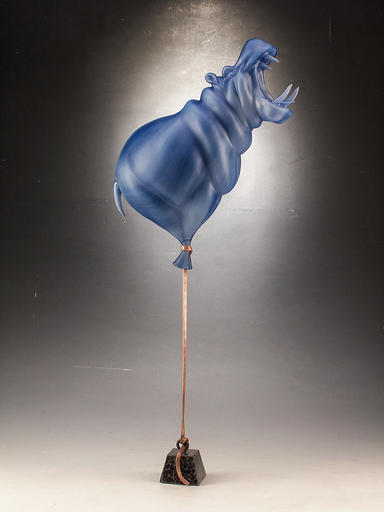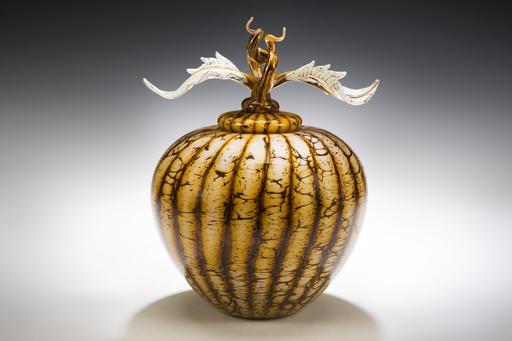Chris Ahalt’s menagerie of blue whales, pink hippos and gold giraffes looks like a flotilla in a really fun dream. Their balloon-animal bodies are gathered at the point of attachment in a tight little knot, tethered to a tiny lead weight.
But they aren’t latex. Ahalt, who lives in Minneapolis, makes the whimsical yet realistic-looking creatures out of blown glass.
“Balloons, to me, suggest celebration, children and wonder,” he says. “The animals that I pick appeal to those child-like sensibilities as well.”
But there’s profundity in his designs, as well. He crafts animals that are facing endangerment; rendering them in glass, he says, highlights not only their beauty but their precarious existence.
“The thrill never gets old of thwarting the glass’ desire to fall apart, and it’s always a victory when a piece comes together,” Ahalt says.
“At times I do wish I’d chosen a career in something a little less temperamental,” he laughs. “Glassblowing can be a really frustrating medium. There are countless hours lost to broken glass.” (www.thechesterfieldgallery.com )
There are lots of other artists, too, willing to take the risk.
Danielle Blade and Stephen Gartner, glassblowers in Ashley Falls, Massachusetts, create vessels and lighting inspired by the environment outside their rural studio.
“Both of us have strong ideas about beauty. We have spectacular gardens here, and it’s wonderful to wander them,” Gartner says.
“We’re trying to bring that walk in the woods into our living room,” says Blade.
In their Strata collection of vases and vessels, tones of warm, earthy color are blown into layers that evoke geological terrain.
A pendant light rendered in different hues brings to mind the gaseous planet Jupiter. Some of the design duo’s objects come topped with surprising touches like a delicate snail’s head; a sliver of animal bone or antler; or a curling leaf. (www.gartnerblade.com)
Casey Hyland blows softly tinged blue and white glass into vessels that look like droplets of sky with wispy clouds. He’ll teach you how to blow your own ornaments, mugs and paperweights in classes offered at his Louisville, Kentucky, studio. (www.hylandglass.com )
Loy Allen rests delicate glass monarch butterflies and dragonflies on bud vases and perfume bottles, using a technique called lampworking, in which the glass is molded over a small flame. A native South Dakotan, she’s inspired by the plant and animal life around her Hot Springs studio, as well as by the Art Nouveau movement. (www.loyallen.net )
Corvallis, Oregon-based artist Eric Bailey’s little creatures include sleek, racer-striped lizards, tree frogs and colorful snails that clamber impishly over bottles and cylindrical paperweights. (www.artfulhome.com )
Beyond objects, some glass designers are producing furniture.
The “canvas” of a coffee, dining or side table can give an artist space to do extraordinary things.
John Foster, another Minneapolis-based artist, assembles multiple cut crystals of various sizes into his Sparkle Palace cocktail table, which looks like a giant molecular structure. When light shines through it, prisms cast a rainbow around the room. (www.thefancy.com)
Designer Liana Yaroslavsky is known for avant garde creations; for example, she encases chandeliers, or piano keys and sheet music, inside her tables. O2, available as a side or coffee table, suspends 100 Murano glass balls inside a transparent cube to give the effect of bubbles in water. And the base of Yaroslavsky’s Luna table was also blown from Murano glass; the sphere looks like she plucked the moon from the sky and rested a glass top on it. (www.lianayar.com )






